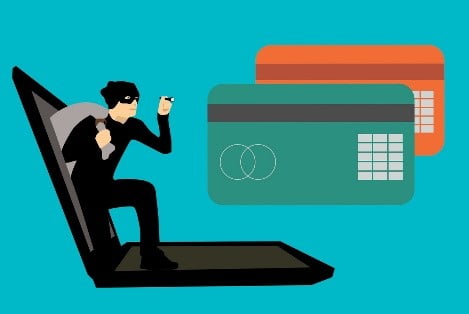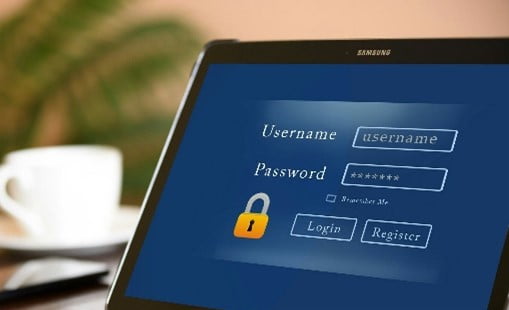Top 8 Helpful Cyber Security Tips That Small Businesses Should Know.
In today’s time, big corporate companies pay a lot on network security appliances to get the best security for their network, but the small business companies overlook it or may not use it in a better way.
Introducing this blog to get the best security for your corporate network whether it is small or large.
To understand the security tips, first, we will see about the most common attacks that attackers can do, to steal data and breach small business IT security.
Phishing — A phishing attack is a social engineering attack that is commonly used to steal user information, such as login credentials and credit card numbers. It occurs when an attacker, disguised as a trusted entity to dupe a victim into opening an email, instant message, or text message.
Web-based attacks — Attackers attempt to gain access to systems that store or interact with your data through Internet services, including websites, applications, APIs, and operating systems. They do this by exploiting a vulnerability in one of these systems or their associated applications.
Malware — There are many types of malware, including basic and advanced viruses, spyware, worms, Trojan horses, and rootkits. Malware can infiltrate and damage computers.
Compromised and stolen devices — Unencrypted sensitive data, which may include credit card numbers, can be sold or used by identity thieves to commit fraud. Even if a physical device is password-protected or otherwise secure, hackers may be able to hack into it.
Credential theft — Often, cybercriminals steal credentials like digital certificates, session cookies, user IDs, and password combinations, which can be used to get inside a network and steal valuable data.
Zero-day attacks — In zero-day attacks, software vulnerabilities are targeted before the vendor is aware of the problem or can patch it.
Denial of service (DoS) attacks — A Denial of Service attack, aims to disrupt the operation of a computer system or network so that it is unavailable to its intended users. DoS attacks do this by flooding the target with data or sending it information that crashes the target.
What Are The 8 Best Cyber Security Tips Beneficial For Small Businessess?
- Hardware and Software Defenses for Cyber Security should be part of your IT strategy:
First on our list of cyber security tips for small businesses is to invest in the resources that will make your business more secure. It is not smart to invest in Cyber Security, but it is necessary.
- Firewall
- Anti-Virus
- Anti-Malware
- Secure Email Server
- Certificates for encryption and authentication
- The least-privilege model should be adopted and enforced:
Ensure that each user has limited access to the information and systems, so they can fulfill their duties. When the least-privilege principle is strictly enforced, it limits the damage a user can do, whether it’s intentionally or accidentally, as well as the reach of an attacker or malware that steals a user’s credentials.
- Maintain up-to-date security patches and configure your software properly:
Install patches for the latest operating systems and applications, including those for mobile devices as soon as they are available and tested.
- Secure connections must be used by employees and other authorized users:
Nowadays, many companies claim to be hybrid workplaces. Because of this, many employees work remotely from outside the office. However, employees should take care not to connect to insecure public wireless networks while working remotely.
- Educate Your Employees on Cyber Security:
As a company, you should ensure that your employees have a high level of cyber awareness. They must know the threats that lurk online and know what tactics cyber criminals might use to target them. Train your employees to use strong passwords, recognize suspicious emails and refuse to open them, and never leave their devices unattended.
You should also teach them how to report suspicious activity and security incidents. Prepare the training for different user groups and test your employees regularly using techniques like false phishing emails.
- Secure your account and passwords with strong passwords:
A password policy should be put in place immediately if your company doesn’t already have one. Ministry of Home Affairs, Cyber & Information Security (CIS) has recommended guidelines for the strong password. These guidelines should be followed closely by your organization’s management and other employees. You can check Information Security best practices shared by the Ministry of Home Affairs.
- Keep an eye on your environment for suspicious activity:
A security best practice is to monitor activity and changes in your network environment. You can detect an attack in time to prevent further damage by quickly noticing suspicious changes and access events.
- Maintain regular data backups:
Always keep a copy offsite and create regular backups. So, if disaster strikes or an attack occurs, you can get back up and running quickly your business, without ever having to purchase a ransomware decryption key.
You can use a good thumb rule known as the 3-2-1 backup rule – According to this policy, a minimum of 3 copies of data should be maintained on 2 different types of media, at least 1 of which should be offsite.
Cybersecurity Tips for Small Businesses: Final Thought
It isn’t enough to protect your company against external threats. Cyber threats can be found both inside and outside your business. Inside threat-related incidents cost a lot to the company, so, it is mandatory for small businesses need to put cybersecurity at the top of their list.
These tips should prove to be useful to you. Many of them can be put into action right away while others may require some planning.
We will build a strong network for your business in a very ethical way to prevent Cyberattacks as well as internal attacks/threats. You can check out other security blogs as well.
“Tell me and I forget, teach me and I may remember, involve me and I learn.”
- Benjamin Franklin
So, please involve me in this tour of learning, we update our blog section daily, please go through from there and learn new things.
Zindagi Technologies is an IT consulting company that has proven experience in cybersecurity, cloud security, Network Security, managed IT, and other services also. You can easily contact us or call us at +91-9773973971.
Author
Jagjeet Singh
Senior Network Security Consultant

4 cyberattack scenarios to test | Zindagi Technologies
August 10, 2022[…] With ransomware attacks on the rise, the frequency of phishing emails and overall business email compromise (BEC) has increased. According to recent research, ransomware currently makes up 27% of malware instances, and 18% of enterprises stopped at least one ransomware variant in 2019. The first step is to teach staff members the importance of exercising due diligence, and practicing phishing scenarios can be a useful teaching tool. […]